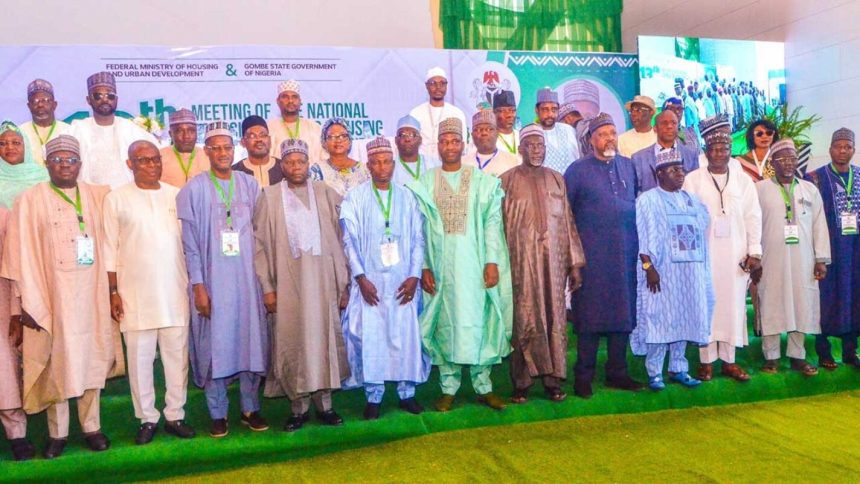The 13th Meeting of the National Council on Lands, Housing, and Urban Development has approved a policy supporting monthly, quarterly, and yearly rental payment systems nationwide.
The council also proposed mandatory rent payments, even in the face of ongoing tenancy disputes or court cases.
Held in Gombe and themed “Housing the Future: Affordable Housing for Economic Growth, Climate Resilience, and Urban Development,” the meeting was attended by stakeholders from the 36 states and the Federal Capital Territory. It focused on creating policies to address recurring tenancy issues and bolster housing sector investments.
The council emphasized the need for tenants to fulfill rent obligations regardless of legal disputes, noting that such measures would prevent discouraging investors due to exploitative court practices. It encouraged tenants experiencing financial difficulties to seek payment plans, which would be evaluated on a case-by-case basis but would not absolve them of rent responsibilities.

Stakeholders also stressed the importance of resolving tenancy disputes through mediation or negotiation while meeting rent obligations to maintain stability in the housing sector.
The meeting further adopted the Green, Resilient, and Inclusive (GRI) framework for housing development. Federal housing institutions were urged to pilot geospatial projects to tackle challenges like flood risk management and traffic control.
In a communiqué signed by the Minister of Housing and Urban Development, Ahmed Dangiwa, the council called for the review of the 2012 National Housing Policy and the Land Use Act. This would ensure equitable access to land, with at least 20 percent of developable land allocated to low-income earners, alongside credit facilities to support development.
The council also encouraged partnerships between local councils and stakeholders to promote Public-Private Partnerships, housing microfinance, and community land trusts to improve affordable housing access.
Other resolutions included the establishment of new building craft training centers, digitalization of land registration systems, and stricter enforcement of the National Building Code to enhance safety and reduce the risk of building collapse.
By proposing these measures, the National Council seeks to address critical challenges in the housing sector, improve tenant-landlord relations, and promote sustainable housing development across Nigeria.



